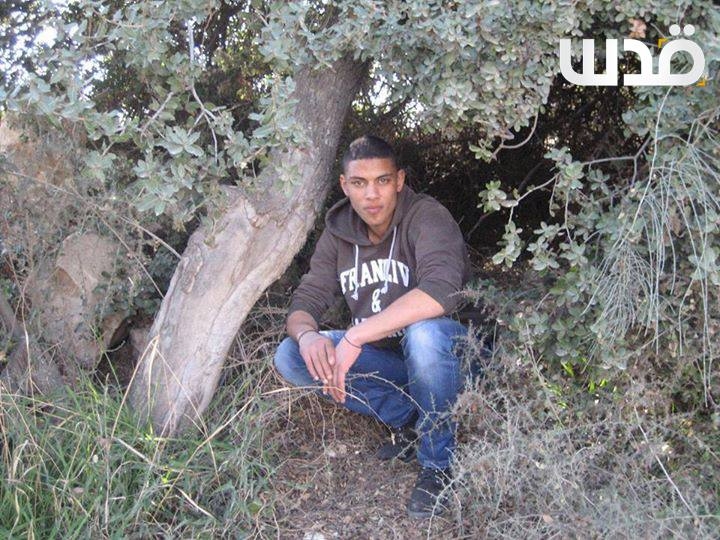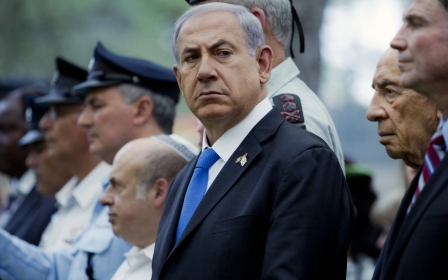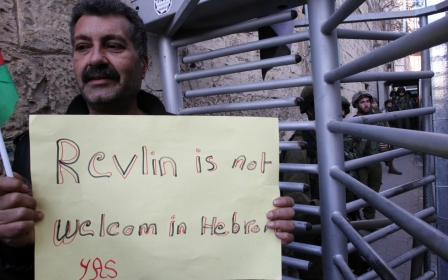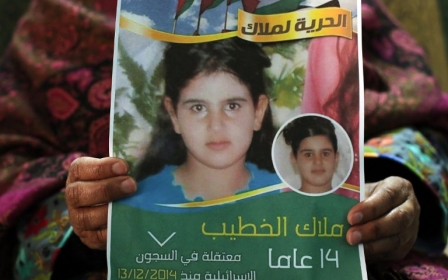Youth killed in Bethlehem as settlement construction stepped up

The Israeli army shot and killed a Palestinian youth on the rooftop of his home in Dheisheh refugee camp in Bethlehem early on Tuesday.
According to eyewitnesses Jihad Jafari, 19, was shot after the Israeli army raided the refugee camp at dawn in an attempt to arrest one of the residents, sparking clashes between Israeli soldiers and local youths.
According to local media sources, the Israeli army prevented the ambulances from reaching Jafari, who was later taken to the Yamama Hospital in Bethlehem where he was pronounced dead at the scene.
An Israeli military spokeswoman said the Palestinians hurled rocks, blocks and firebombs at the army, wounding one soldier.
Jafari was the third Palestinian to be killed by the Israeli army in the West Bank this year, with the incident coming at a time of increased tensions.
On Sunday and Monday, two Israelis were stabbed in two separate incidents in Jerusalem. The first attack has been linked to a Palestinian attacker, while Israeli police have opened an investigation into yesterday’s stabbing.
Jerusalem is claimed by both Israelis and Palestinians as the rightful capital of their prospective states, but the eastern parts of the city have been occupied by Israel since 1967 when Israel managed to seize control of the West Bank and Gaza during the Six-Day War.
While certain parts of the West Bank were officially handed over to the Palestinian Authority in the wake of the Oslo Accords in the 1990s, Israel continues to control the vast majority of the West Bank and launches frequent military incursions into the territories. Tel Aviv also continues to control issues like tax collection and distribution, power supply, road access, and the issuance of identification cards for all Palestinians in the West Bank and Gaza.
The issue of settlement construction, however, has been one of the most controversial with the West Bank now home to some 600,000 settlers, including those in East Jerusalem, that are one of the main obstacles to the faltering negotiations between the Palestinian Authority and the Israeli government. Despite repeated calls for a freeze in settlement building by the international community, Israel stepped up construction by 40 percent in 2014, an Israeli NGO claimed in a report released on Tuesday.
Peace Now, which monitors and campaigns against Israeli settlement activities, said that Israel had begun construction of some 3,100 residential units in the West Bank, while proposals to build an additional 4,485 residential units were also put forward during this time.
In late January, 450 more units were announced, the NGO said, while adding that a record number of housing tenders were issued in 2014.
Settlements control around 40 percent of the West Bank’s territory, and are spread across the breadth and length of the area. They are connected together, and to Israel, through a vast transport infrastructure that include settler-only roads.
The occupation is deemed to be illegal under international law. In January, the Israeli government withheld $100 mn of tax revenue it collects on behalf of the PA as punishment for the latter's decision to join the International Criminal Court late last year.
The move has further intensified the PA’s massive debt burden, which is estimated to be around $4.2 bn.
The funding shortfall has made it increasingly difficult to pay off the PA’s power bills, which on Monday prompted the Israel Electric Corporation to disconnect two West Bank cities for about an hour.
Nablus and Jenin, in addition to the towns and villages that receive power from the Palestinian Northern West Bank electricity company, were plunged into a brief yet deliberate power outage.
In a statement, the Israel Electric Cooperation said that it had “limited for 45 minutes the supply of electricity to five power lines in Nablus and Jenin” because the Palestinian Authority owes more than $500 mn to the company.
However, Ghassan al-Shakaa, the chairman of the board of directors of the Northern West Bank Electricity Company, told Palestinian local news agency Maan that “the only unpaid bill [was] the latest bill of 40 million shekels (around $10 mn) which we received only a few days ago”.
There are no accumulated debts, he added, saying that his company had contacted PA officials to end the crisis.
New MEE newsletter: Jerusalem Dispatch
Sign up to get the latest insights and analysis on Israel-Palestine, alongside Turkey Unpacked and other MEE newsletters
Middle East Eye delivers independent and unrivalled coverage and analysis of the Middle East, North Africa and beyond. To learn more about republishing this content and the associated fees, please fill out this form. More about MEE can be found here.




